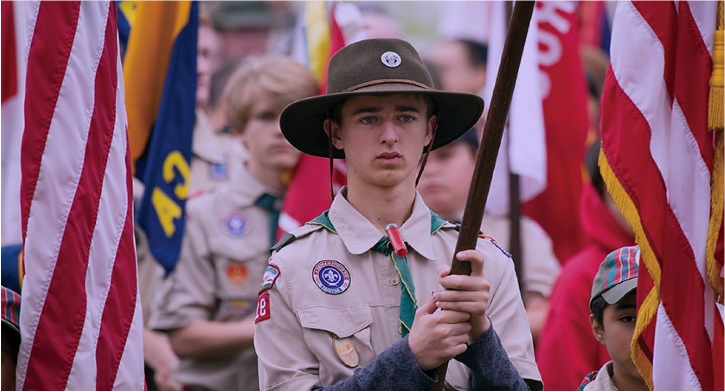

A federal judge in Delaware has ruled that the Boy Scouts of America’s $2.4 billion bankruptcy plan is valid, paving the way for the organization to continue operating while compensating tens of thousands of men who were sexually abused as children while involved in Scouting. The ruling, released by Judge Richard Andrews in U.S. District Court, rejected arguments that the plan was not proposed in good faith and improperly stripped insurers and survivors of their rights.
Over 80,000 men have filed claims against the Boy Scouts, alleging that they were sexually abused as children while involved in Scouting. Some opponents of the bankruptcy plan argued that the huge number of claims, when combined with other factors, suggested that the bankruptcy process was manipulated. However, the judge found no fault with the plan’s initial approval by a federal bankruptcy judge in September.
Under the plan, the Boy Scouts of America will contribute less than 10% of the proposed settlement fund, while local Boy Scout councils have offered to contribute at least $515 million in cash and property. The bulk of the compensation fund will come from the Boy Scouts’ two largest insurers, Century Indemnity and The Hartford, which will contribute $800 million and $787 million, respectively. Other insurers have agreed to contribute about $69 million.
Insurers opposing the plan argue that the Boy Scouts of America is contractually obligated to assist them in investigating, defending, and settling claims, as it did before the bankruptcy. They say the organization colluded with claimants’ lawyers to inflate both the volume and value of claims to pressure insurers for large settlements, then transferred its insurance rights to the settlement trust.
Under the Boy Scouts’ plan, insurance companies, local Scout councils, and troop sponsoring organizations will receive broad liability releases protecting them from future sex abuse lawsuits in exchange for contributing to the victims’ compensation fund. However, some abuse survivors argued that releasing their claims against non-debtor third parties without their consent would violate their due process rights.
The Boy Scouts’ largest insurers negotiated settlements for a fraction of the billions of dollars in potential liability exposure they faced. Other insurers, many of which provided excess coverage above the liability limits of the underlying primary policies, refused to settle. They argued that the procedures for distributing funds from a proposed compensation trust would violate their contractual rights to contest claims, set a dangerous precedent for mass tort litigation, and result in grossly inflated payments.
The U.S. bankruptcy trustee, the government’s “watchdog” in Chapter 11 bankruptcies, argued that such releases are not allowed under the bankruptcy code, and that the scope of the proposed releases in the Boy Scout plan was unprecedented because it potentially extends to tens of thousands of entities.
The ruling is a significant milestone in the long-running bankruptcy case, which was filed by the Boy Scouts of America in February 2020 after a surge in sexual abuse lawsuits. The organization has been in decline for years due to declining membership and increased competition from other youth organizations. The bankruptcy plan will enable the Boy Scouts to continue its operations while compensating abuse survivors and resolving its outstanding legal liabilities.